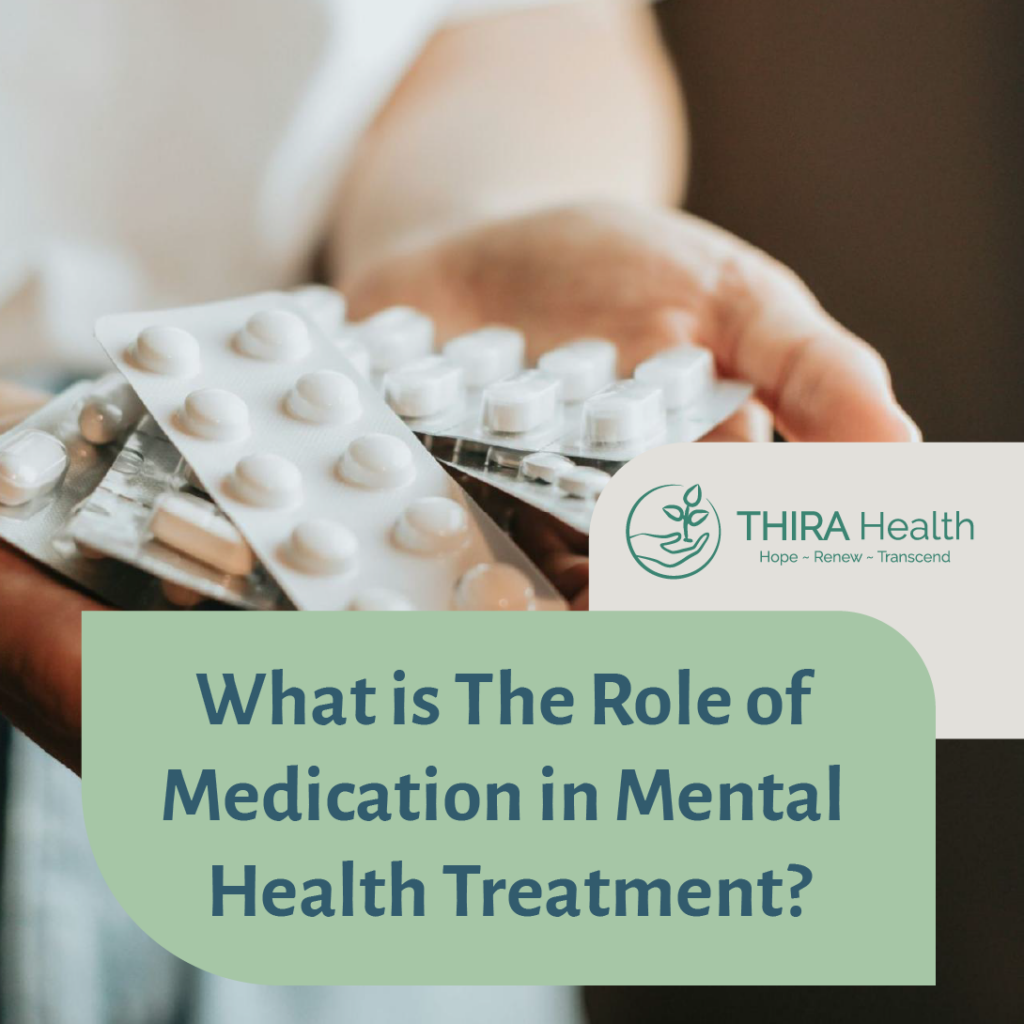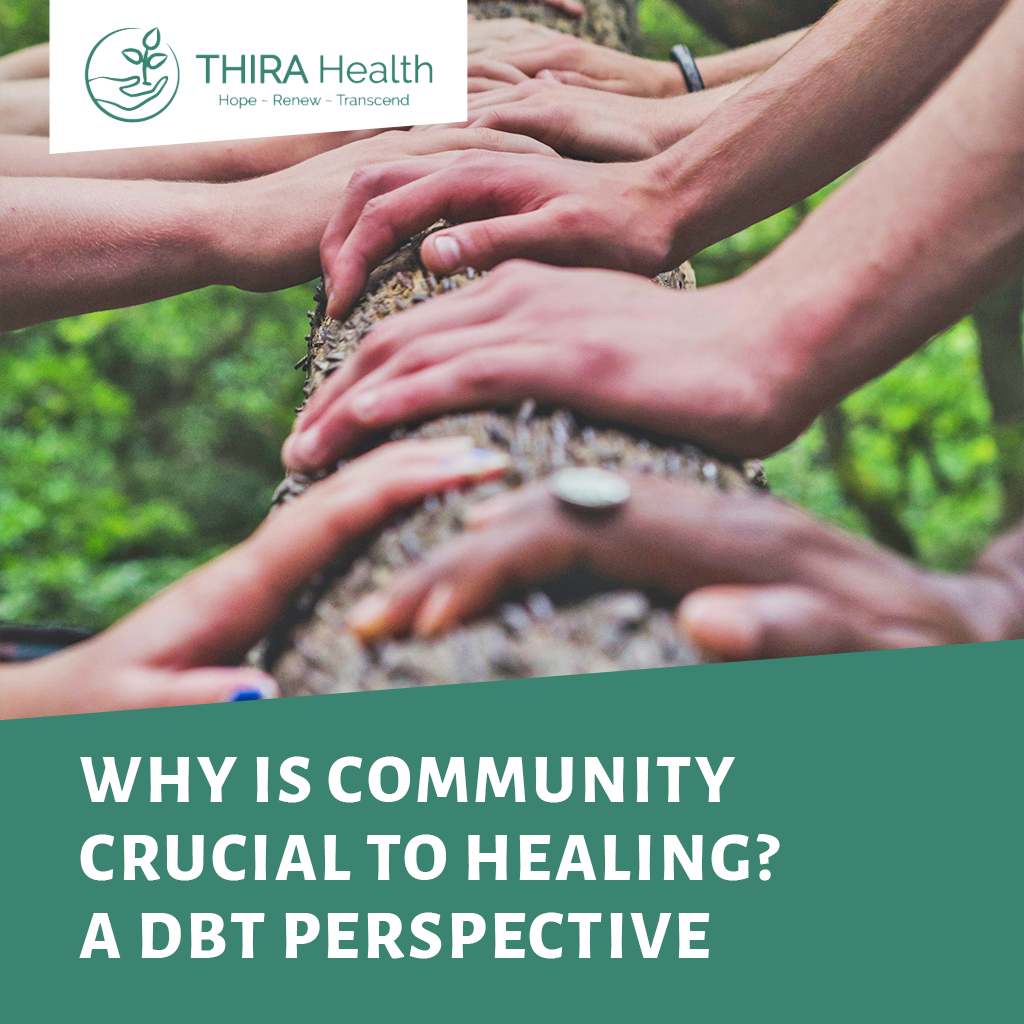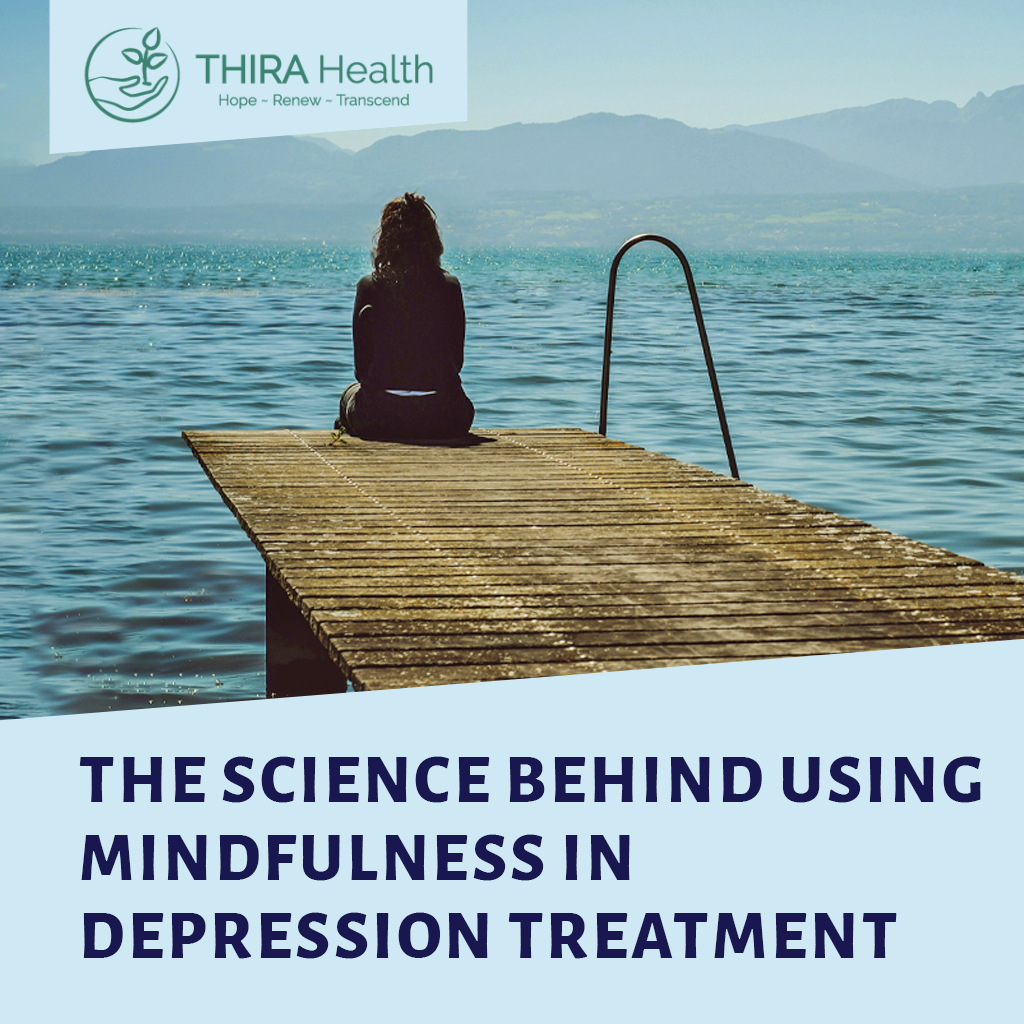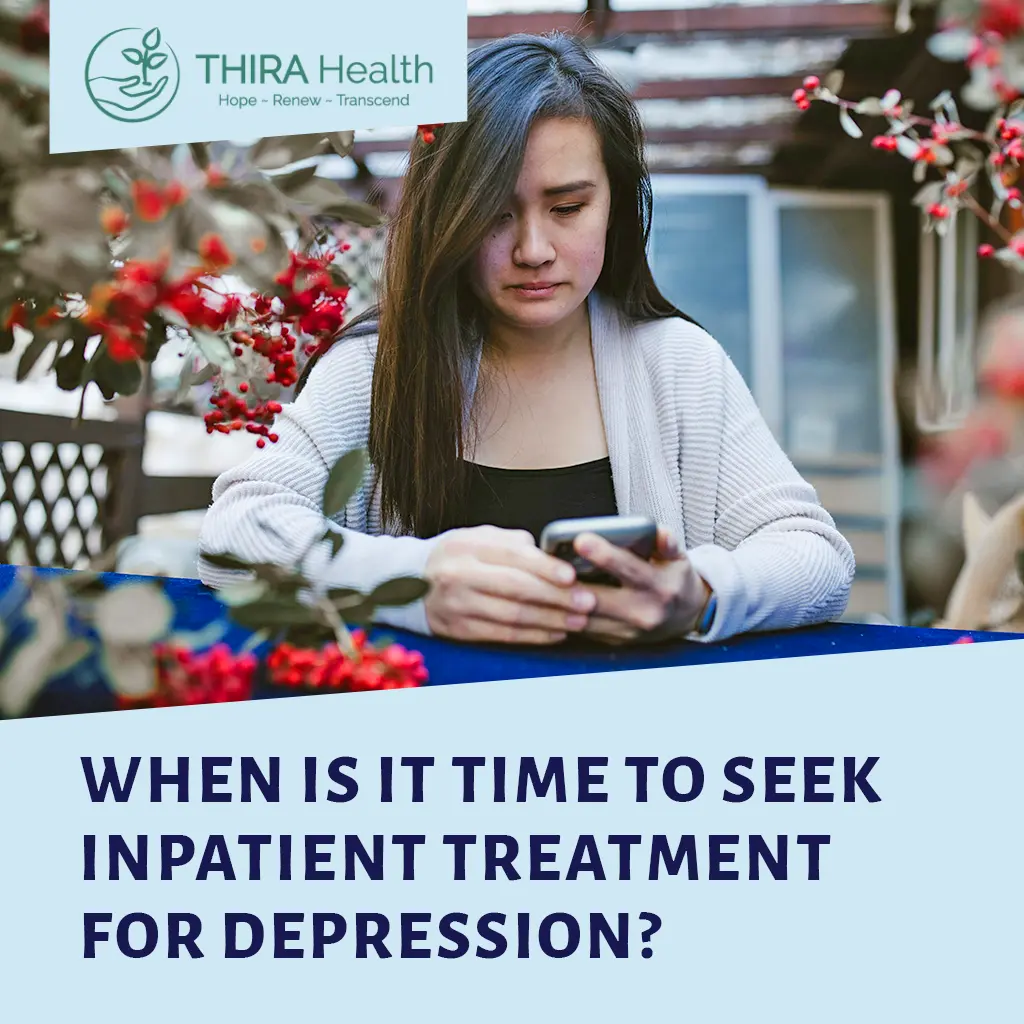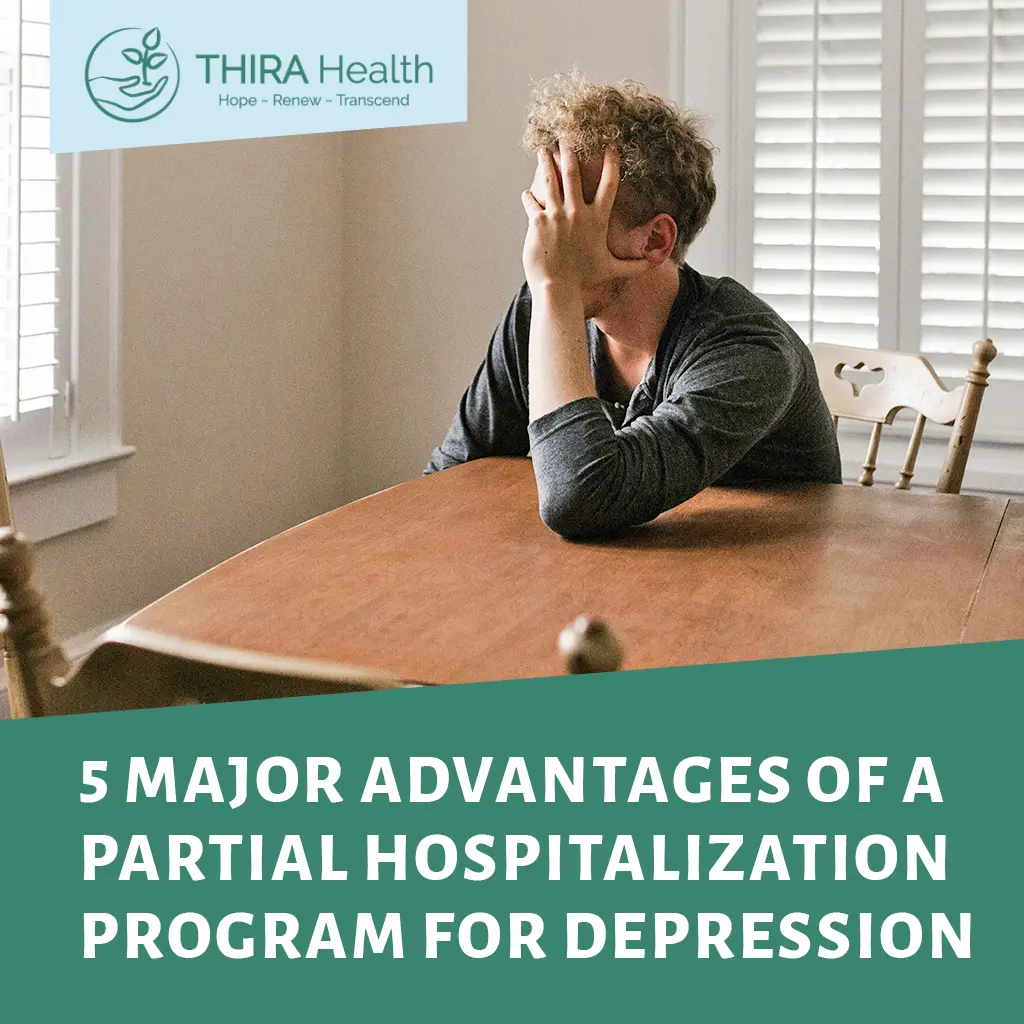When you talk to providers and patients alike, you’ll find there are almost as many perspectives on the role of medication in mental health treatment as there are medication options. Using medication as part of your mental health treatment is a personal choice, and it can be a highly effective tool to use in intensive depression treatment to help alleviate symptoms.
At THIRA Health, we believe medication can be hugely helpful as part of a holistic depression treatment program, but we know that hesitation around medication is a common experience. We hope to offer you information, to help you understand where medication can fit into intensive depression treatment, and to help you make informed decisions on your mental healthcare journey.
Why would someone use medication for mental health?
Medication is a useful component of a comprehensive mental health treatment plan. Medication, psychotherapy, physical health support, mindfulness and grounding practices, creative expression, and spiritual practices can all be integral parts of a holistic mental health approach.
Psychiatric medications can be great supports to reduce symptoms, sometimes even eliminating them. This can make it easier to adhere to other aspects of your mental health treatment. Instilling hope is also an important component of intensive depression symptoms, and witnessing a reduction in symptoms can encourage you, proving that relief is possible. Because medication is a daily support that you can integrate into your routine, it can be a consistent way to treat your mental health condition.
Are there downsides to taking medication for mental health?
Mental health medications can have some challenges for patients. Side effects are common, though most are either tolerable when the medication provides relief otherwise, or they fade with time and are not permanent. Some side effects, however, are intolerable, but when they are, you can work with your prescriber to safely discontinue your medication and discuss options for trying another.
Medication for mental health can interact with other medications, and can also be incompatible with some physical health conditions. It is important to be up-front with your prescriber about everything you know about your health, so they can make sure to avoid incompatibilites.
When you try a mental health medication, it can be the case that it simply doesn’t help you as much as you’d hoped. It can also take time to determine the full effects of the medication, so patience is required. Starting a medication can be frustrating, and it can be even more frustrating when you find it doesn’t help as much as you’d hoped. The patience required in finding the right mental health medication can be difficult, so managing expectations and voicing your concerns to your provider are both worthwhile to help you persevere in finding the best fit for medication for mental health.
What is included in a high-quality intensive depression treatment plan?
Some providers are comfortable with depression treatment solely consisting of medication for mental health. That approach can reduce symptoms, but it does not offer any other sources of support.
Intensive mental health treatment should include multiple approaches, so you can receive the most support possible. Medication is a worthwhile support for depression treatment, but adding in therapy, nutritional support, exercise, mindfulness, creative expression, and more, can help you find many ways to work through your mental health symptoms and cope with life’s past and present stresses.
Intensive depression treatment, either in a residential, partial hospitalization, or outpatient setting, should incorporate evidence-based and holistic treatments, all aiming to create a personalized treatment plan that helps you work toward your mental health goals. Medication can be an integral support in such a plan, both for short-term relief to get treatment started and for long-term relief that gives you the mental space to incorporate techniques that support your ongoing well-being.
Is medication for mental health necessary for intensive depression treatment?
Medication is not required for the treatment of depression, but it can provide significant symptom relief. It can be a useful support for your therapy goals, helping you develop coping skills and process difficult experiences because you’re no longer stuck with extreme symptoms.
It is important to remember, however, that if you don’t find a medication that works the way you need it to, or you have conditions or current medications that make it harder to find the right medication for mental health, you have many other treatment options, and can still establish a high-quality intensive depression treatment plan. Taking your time to find the medication that works best for you can be one part of your treatment, and you can make progress in other areas while exploring medication as a treatment possibility.
How will I know if I need to talk to my doctor about changing medications or dosages?
You may find that, as you move through intensive depression treatment there may be changes that mean it’s worth having a conversation with your doctor about your medication. As part of medication management for mental health in Seattle, your provider should be responsive and consider whether you need a different dosage, or a different type, of medication.
Speak to your provider if you notice:
- You’re experiencing new or different mental health symptoms
- You don’t feel you’re getting enough help from the medication
- The side effects aren’t easing up, and you find them too unpleasant to tolerate
THIRA Health can support you with medication management for mental health in Seattle
At THIRA Health, our mental health treatment programs include medication management as an integral part of intensive depression treatment. Our providers can help you find the best medication option possible, while also integrating multiple other treatment components into your personalized plan. Contact us today to see how we can help with medication management, and get you started on the path to mental well-being.

